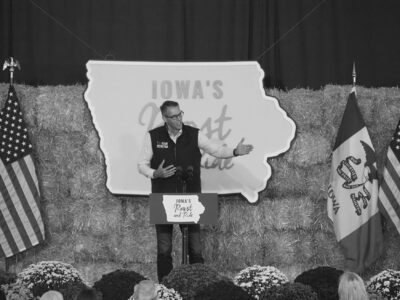Thanksgiving Day, a day for unity in America
Thanksgiving Day took root in our nation’s history as a “day of public thanksgiving and prayer” when George Washington issued a proclamation in 1789, calling upon freshly minted Americans to celebrate ratification of the Constitution and coalesce around the bounty of hard-fought freedom.
Having secured the right of self-governance, our nation’s first president recognized Americans needed to overcome internal divisions and regional differences to secure a lasting republic.
And so, President Washington called for a civic celebration to unify Americans in the shared blessings of freedom. He called upon our Creator to “render our national government a blessing to all the people, by constantly being a Government of wise, just and constitutional laws, discreetly and faithfully executed and obeyed.”
Seven decades later, factional divisions split Americans into Civil War. In 1863, our nation’s 16th president issued a proclamation to celebrate Thanksgiving Day on the last Thursday of November. For years leading up to President Abraham Lincoln’s proclamation, a prominent author, Sarah Josepha Hale, lobbied for a national day of thanksgiving to unify Americans. She advocated for the holiday to become an “American custom and institution.”
Just a few months following the Battle of Gettysburg, the deadliest battle of the Civil War, President Lincoln signed the proclamation to implore “the Almighty Hand” to help “heal the wounds of the nation.”
As we close out the first quarter of the 21st century, the lessons of history call upon Americans to renew these thanksgiving covenants as we look ahead to our nation’s 250th anniversary of independence.
America is a land of plenty. From agricultural abundance to economic prosperity and entrepreneurial opportunity, Americans are blessed with the promise of prosperity. During this season of thanksgiving, we’re called to count our blessings, give back to our communities and help neighbors in need.
Four centuries ago, the Mayflower Compact set the precedent for self-government, signed one year before the colonists celebrated their survival and a successful harvest season. Their thanksgiving feast with Native American members of the Wampanoag people included venison, fowl, fish, vegetables and nuts to rejoice in the fruits of their labor.
This year the Grassley family will gather around the Thanksgiving table at our farm in New Hartford to count the blessings of faith and family and give thanks for the harvest season. After enjoying turkey, mashed potatoes and green bean casserole, I leave plenty of room for Barbara’s cherry cobbler and apple crisp with ice cream for dessert. Since I was a young boy, I’ve enjoyed family conversations at mealtime. Thanksgiving Day brings even more voices and points of view to the table that ought to be welcomed.
Throughout my time in public service, I’ve worked to facilitate dialogue and encourage civic participation. This month I reached a pair of milestones that reflect my tireless commitment to self-government. In addition to completing 45 consecutive years of my annual 99 county meetings, I tallied one million followers on the X platform on social media. Both exemplify my approach to holding myself accountable and accessible to the people.
Dialogue is the essence of representative government and central to building social cohesion. In the 17th century, Edward Winslow chronicled the Pilgrims’ settlement in Plymouth as a community “not laid upon schism, division or separation, but upon … the welfare of each other and their posterities to succeeding generations.”
In the spirit of Thanksgiving, let’s recommit ourselves to finding common ground with family members, friends and neighbors. When you’re passing the potatoes around the Thanksgiving table, don’t pass up the opportunity to give thanks for the blessings of America that we share and to pray for the men and women who are away from home in service to our country to protect and defend those freedoms.
——-
Charles Grassley, a Republican from New Hartford,
represents Iowa in the United States Senate.


